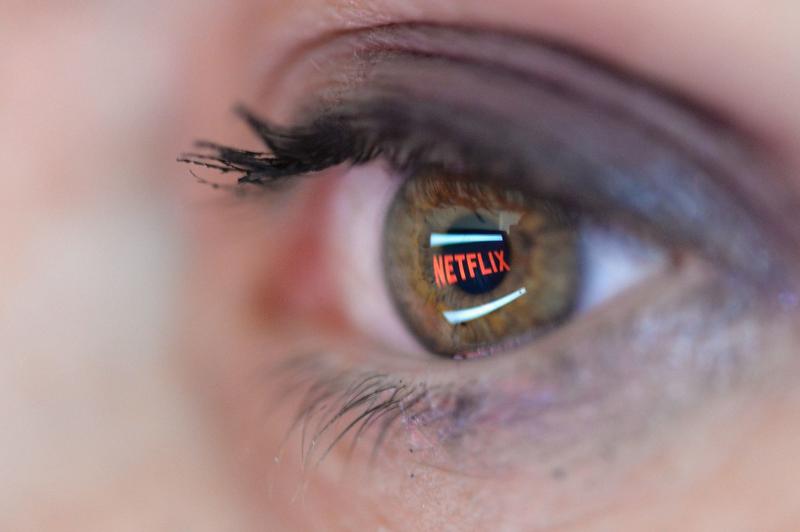 In this Sept 19, 2014 photo illustration, the Netflix logo is reflected in the eye of a woman in Paris, France. (PASCAL LE SEGRETAIN / GETTY IMAGES VIA BLOOMBERG)
In this Sept 19, 2014 photo illustration, the Netflix logo is reflected in the eye of a woman in Paris, France. (PASCAL LE SEGRETAIN / GETTY IMAGES VIA BLOOMBERG)
Investors are almost through the first coronavirus-wrecked earnings season, and the message from the leading entertainment companies is that things will get worse before they get better. If there's a silver lining, it may be that the pandemic is also providing a clearer picture of the future of entertainment consumption, and it substantiates the industry’s costly plans to go all-in on streaming platforms.
It remains to be seen if, after all that time spent gaming and streaming from the couch, consumers will be itching to go to the movies once again
The most telling number that came out of earnings in recent weeks was 91 percent. That’s how much net income plunged at Walt Disney Co, one of the most time-tested, resilient companies in the world. Regional lockdowns have taken aim at all of Disney’s core businesses, most notably its theme parks around the world, which have been closed to visitors for weeks. But the TV and film operations at Disney’s rivals are also hurting. In fact, Netflix Inc is the only media giant that doesn’t have revenue tied to advertising, live sports or people leaving their houses, and it’s the only industry stock that's been left unscathed:
ALSO READ: With 54.5 million users, Disney+ is now Netflix’s top challenger
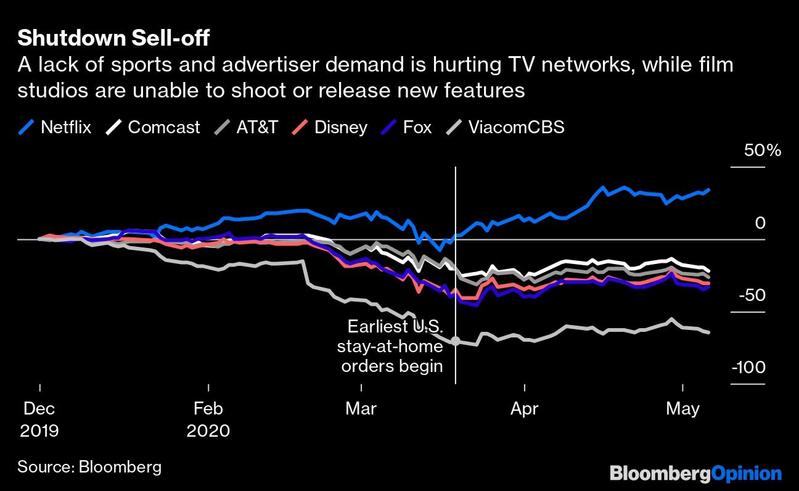
Explosive demand for TV content led almost 16 million people to sign up for Netflix — more than double what the company predicted before the COVID-19 outbreak. The extended time at home also has been a chance for consumers to take new apps out for a spin, including Disney+, Apple TV+, Quibi and Comcast Corp’s Peacock. Disney+ has added 28 million subscribers since December. Meanwhile, as the recession causes consumers to tighten their budgets, pricey cable-TV bills will be on the chopping block. Already last quarter, the big four pay-TV providers saw an exodus of nearly 2 million customers, with AT&T Inc’s DirecTV accounting for almost half of those cancellations:
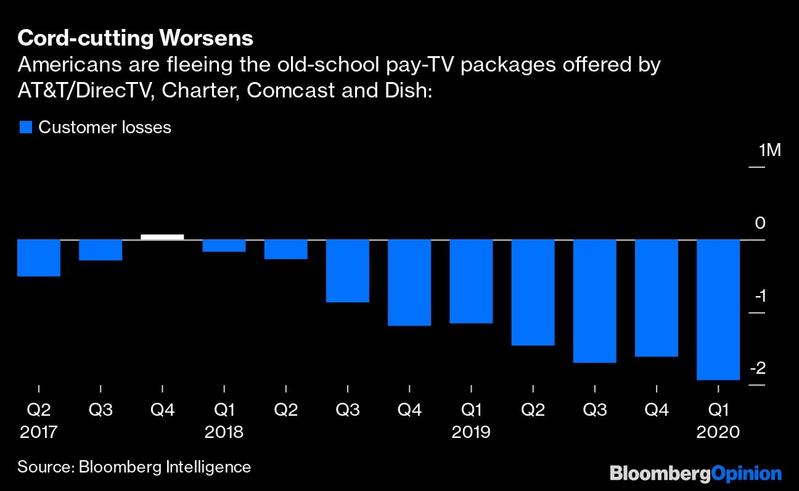
The desire to save money is boosting interest in free streaming-video services, such as Pluto TV and Tubi, that are funded by advertisers. Pluto TV’s growth proved to be the biggest bright spot in ViacomCBS Inc’s quarterly results, as the cancellation of the NCAA March Madness tournament crushed traditional network ad sales:
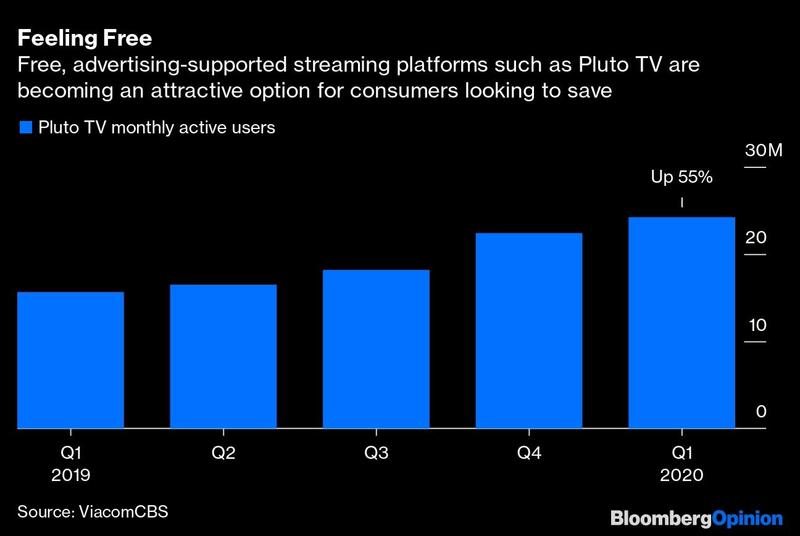 Without sports, consumers are dusting off their gaming consoles and playing for hours on end. Verizon Communications Inc said that while video usage on its internet network was up 40 percent, that’s nothing compared to the 200 percent increase in gaming. Like social-media apps, online gaming can provide a sense of community — something streaming-TV apps may aspire to do one day but don’t yet. In-game purchases are also extending the life of games, and they’ve become a money gusher during the lockdown for publishers such as Electronic Arts Inc:
Without sports, consumers are dusting off their gaming consoles and playing for hours on end. Verizon Communications Inc said that while video usage on its internet network was up 40 percent, that’s nothing compared to the 200 percent increase in gaming. Like social-media apps, online gaming can provide a sense of community — something streaming-TV apps may aspire to do one day but don’t yet. In-game purchases are also extending the life of games, and they’ve become a money gusher during the lockdown for publishers such as Electronic Arts Inc:
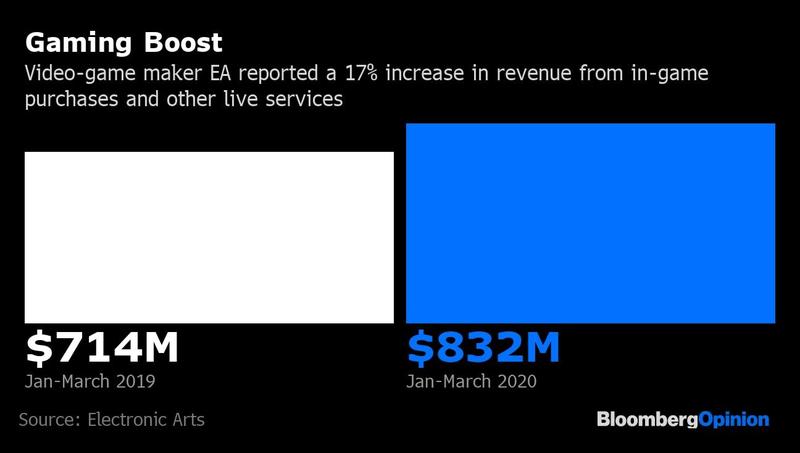
It remains to be seen if, after all that time spent gaming and streaming from the couch, consumers will be itching to go to the movies once again. Even as some states begin to reopen business, it won't be possible to gauge any recovery for the movie-theater industry just yet because the year’s biggest films have been postponed:
READ MORE: Netflix doubles expected signups but warns virus boost may fade
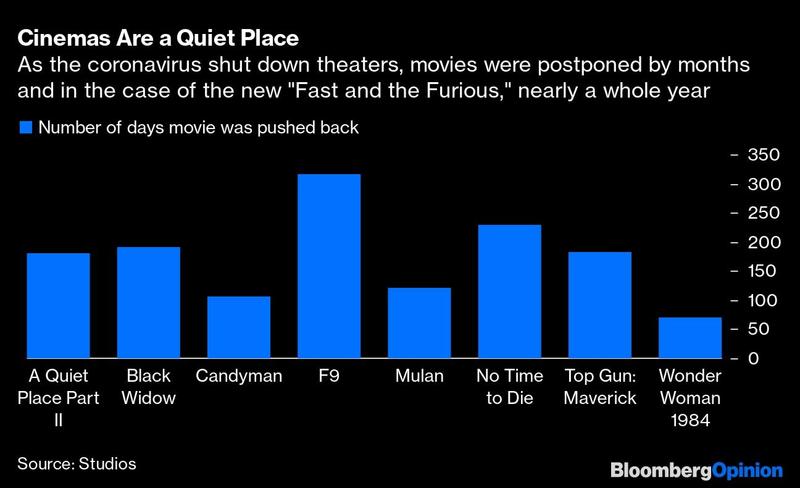 The same uncertainty hangs over theme parks. Disney plans to reopen its Shanghai park next week to a relatively small number of visitors. Normally, that resort’s capacity is 80,000 guests, but the local government is allowing just 30 percent of that, and Disney is capping ticket sales at even less at first. With face masks and temperature checks, and no more hugs from your favorite character, it’ll be a test of whether consumers still see Disney as a magical place to escape the real world — or a sad reminder of what it's become. Some may choose to just stay home and stream.
The same uncertainty hangs over theme parks. Disney plans to reopen its Shanghai park next week to a relatively small number of visitors. Normally, that resort’s capacity is 80,000 guests, but the local government is allowing just 30 percent of that, and Disney is capping ticket sales at even less at first. With face masks and temperature checks, and no more hugs from your favorite character, it’ll be a test of whether consumers still see Disney as a magical place to escape the real world — or a sad reminder of what it's become. Some may choose to just stay home and stream.


